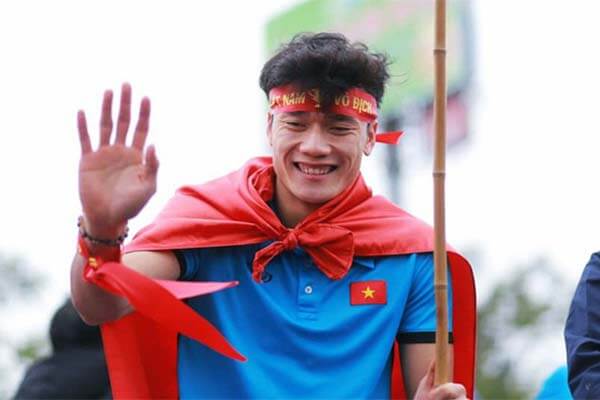Greetings play a significant role in the spiritual life of Vietnamese. It is not only a communication etiquette but also a mental expression of community. With historical and cultural traditions over a thousand years, greetings represent national characters such as respecting elders, teachers or appreciating other social relationships. For Vietnamese, a greeting is not a simple sentence. There are many different ways to give the signal that you are greeting other people. If you are planning to make a Vietnam vacation packages, let’s take a quick view of Vietnam greeting and etiquette.

How do You Say Greetings in Vietnamese?
Say “Xin chao” as a common greeting.
This greeting is more appropriate for non-native speakers because it is the easiest and the most polite way to greet Vietnamese people. Native speakers do not usually say that because it sounds formal.
Say “Chao ban” when you are close.
If you get a close relationship with the person you are talking to, let’s use “Chao ban” as a greeting. “Ban” is an informal way of meaning “you” in English. It can be used for both genders but in approximately the same age as you. Therefore, do not say that to elders or someone you want to show your respect.
Use “Chao anh”, “Chao chi”, “Chao co”, “Chao chu”, etc for elders.
These phrases are only used for people who are older than you. Remember that you say “Chao anh” and “Chao chu” if the listeners are male. If they are female, let’s say “Chao chi” or “Chao co”.
“Chao em” to younger people.
For younger people, say “Chao em” when you meet them. Do not use that for someone older or the same age as you.

Vietnam Additional Greetings
Say “Alo” when answering the phone. If someone calls you, let’s say “Alo” that have the same meaning to “Xin chao”. This way is common for phone calls not for communication in face-to-face.
Greetings based on the time of a day.
Vietnamese people do not usually greet others according to the time of the day because it sounds relatively unnatural. These greetings are:
“Good morning” is “Chao buoi sang”
“Good afternoon” is “Chao buoi trua”
“Good evening” is “Chao buoi toi”
When you want to say “How are you?” in Vietnamese, it means “Bạn có khỏe không? “. You can change flexibly the word “ban” into other words like “anh”, “chi”, etc. to make it appropriate for specific situations and relationships. To reply to this kind of greeting, you inform them of your health status then you can ask them again with a question “Con ban?” like “And you?” in English.


